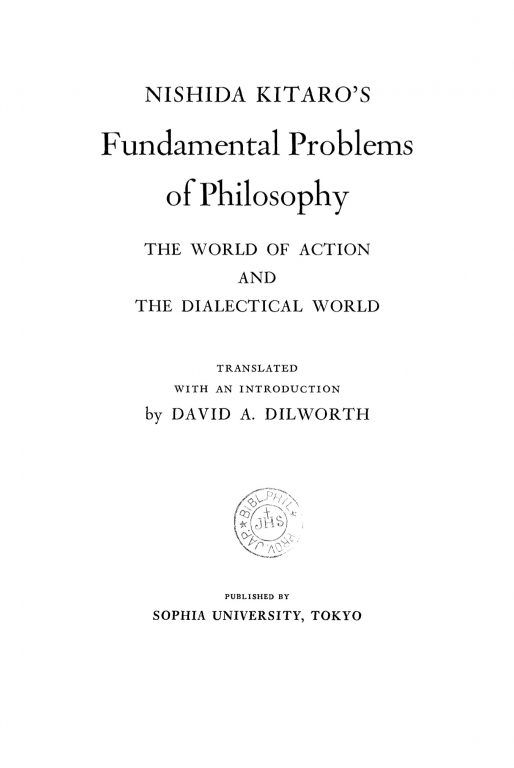Fundamental Problems of Philosophy: The World of Action and the Dialectical WorldNishida Kitarō
Translated by David A. Dilworth
Monographs (1970) pp. 1–258
Three major works issued directly out of [Nishida’s] new turn of thought achieved in 1927, namely The Self-Conscious System of the Universal (1930), The Self-Conscious Determination of Nothingness (1932), and Fundamental Problems of Philosophy (2 volumes, 1933-4). This final work, which is translated here in full, represented the fruit of this long process of refinement of Nishida’s fundamental ideas and philosophical vocabulary concerning the ‘immediacy of experience’. In retrospect, it is representative of his mature and final ‘system’, although Nishida continued to deepen his ideas between 1934 and 1945 in over six large volumes of philosophical essays. His final piece, ‘The Logic of Place and a Religious World-View’ (1945), clearly shows that his basic ‘system’ was already elaborated in Fundamental Problems of Philosophy. In the latter’s Preface, Nishida expresses satisfaction that the fundamental structure of his thought is finally coming into focus. Its last chapter, ‘The Forms of Culture of the Classical Periods of East and West’, also gives us some idea of how Nishida attempted to spell out a ‘logic of the East’ from the point of view of comparative philosophy. Nishida was a pioneer in this kind of comparative philosophy, but his fuller development of a ‘logic of the East’ and dialogue with Western thought structures is essentially to be found in the gradual expression of his metaphysical position since 1927, and perhaps especially in the synthesis of ideas achieved in Fundamental Problems of Philosophy.
1970. 258 pages.
Hardback. [Out of print]
